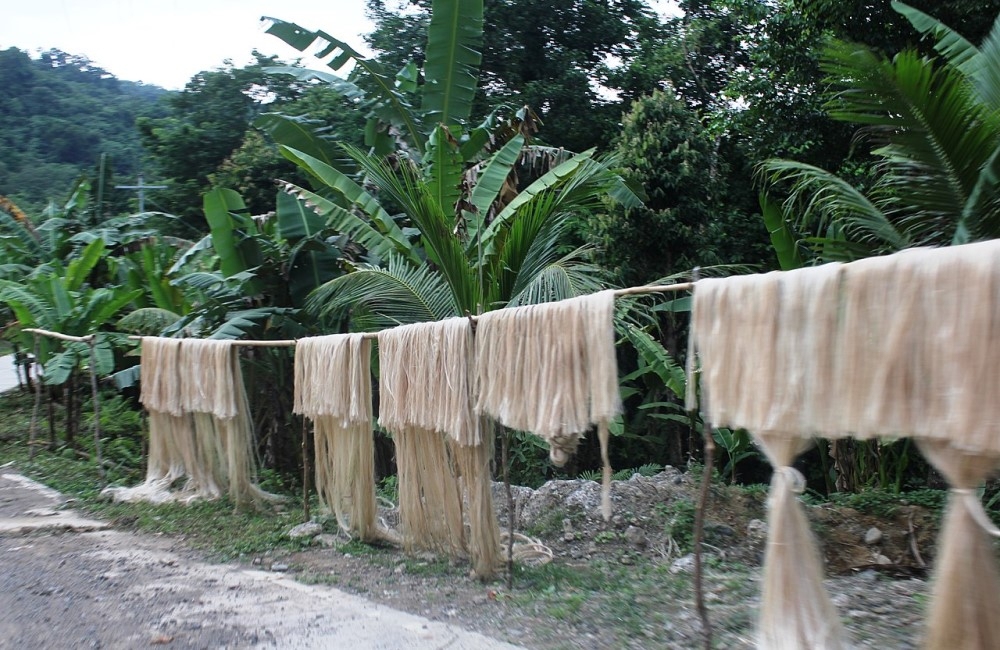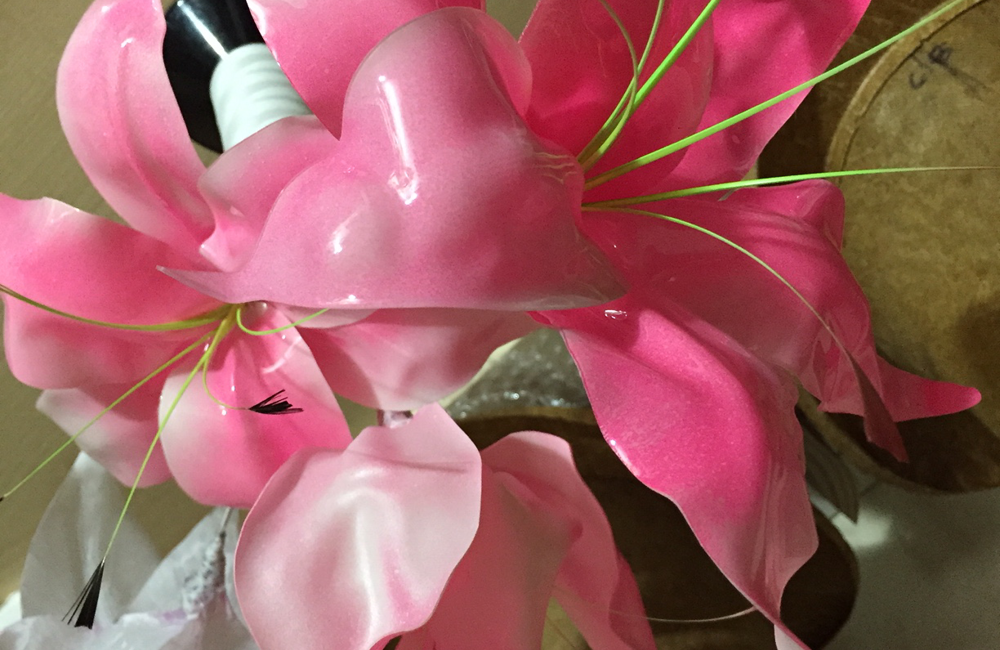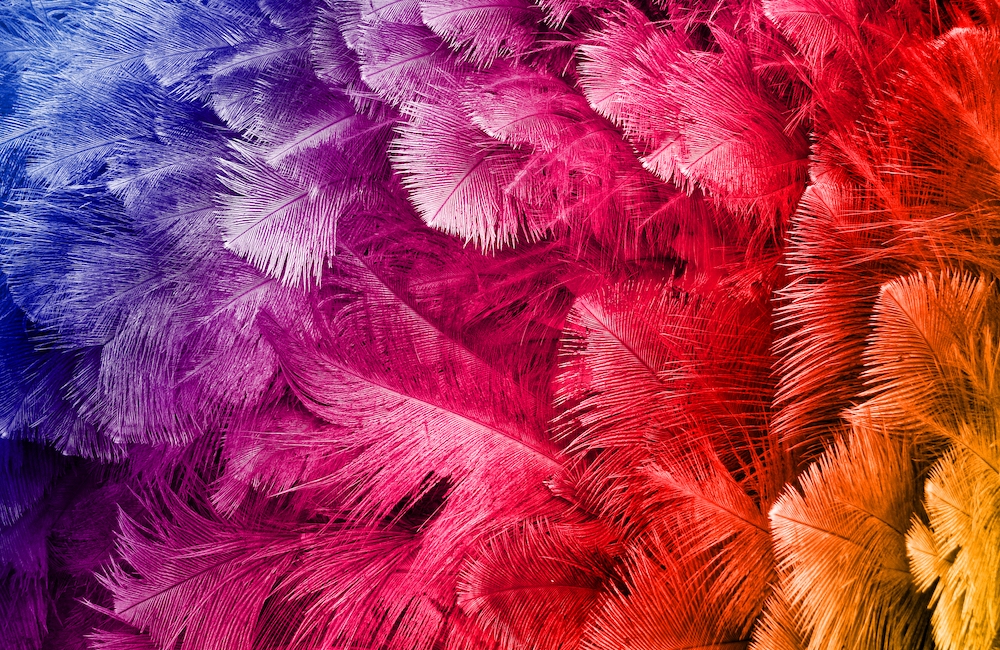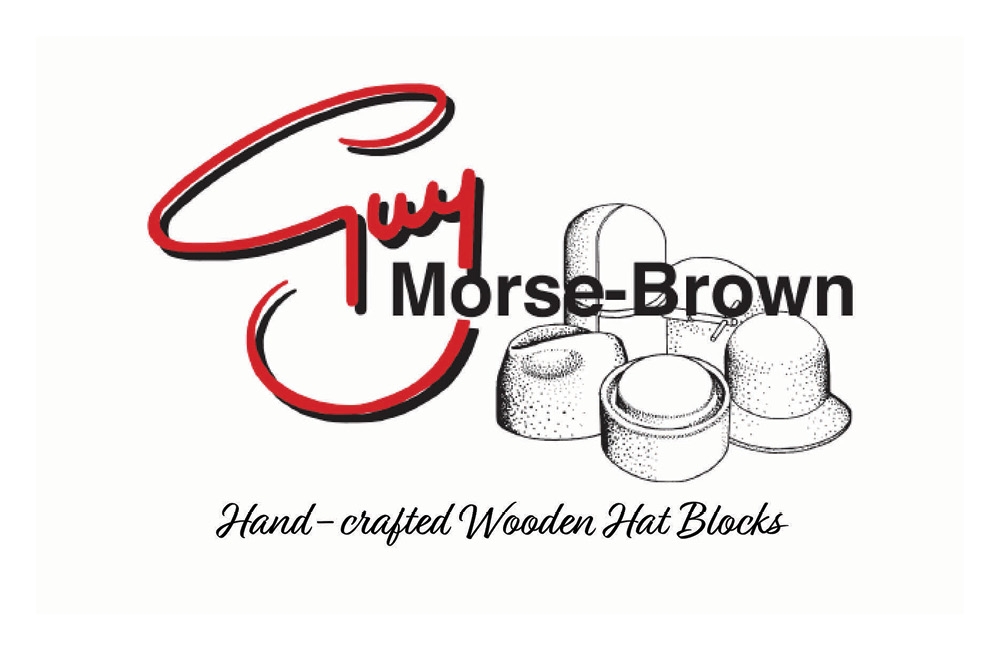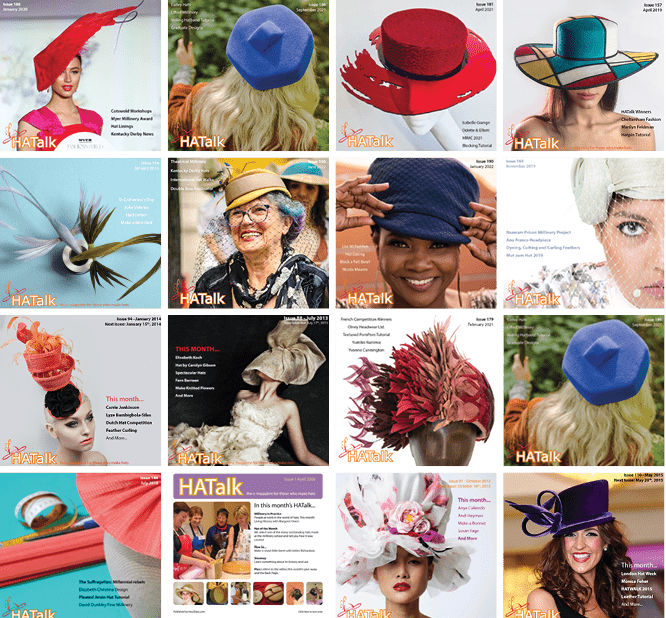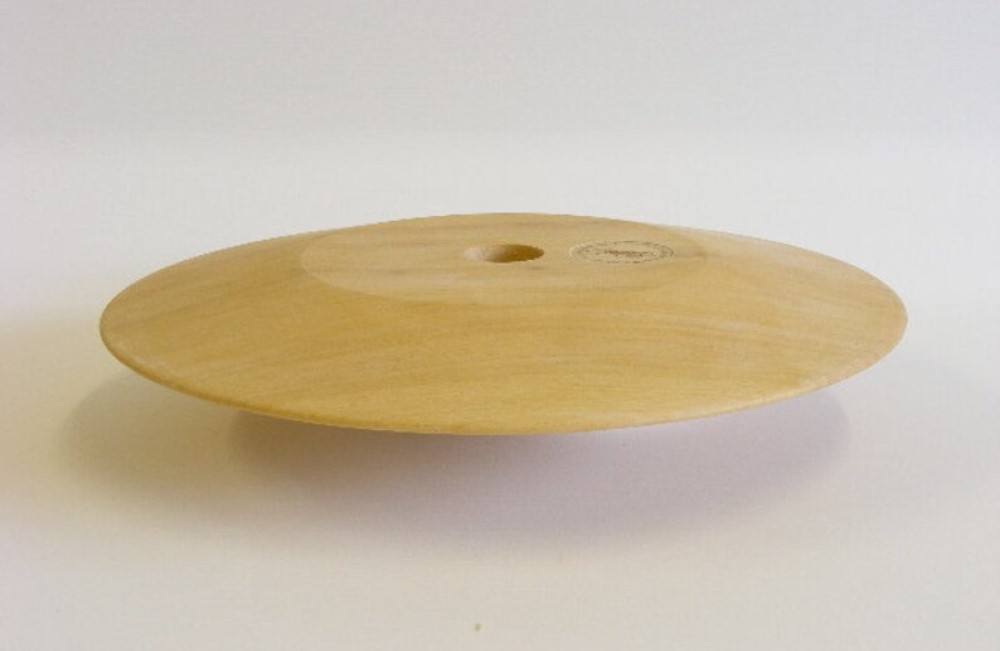Blog / What is Sinamay?
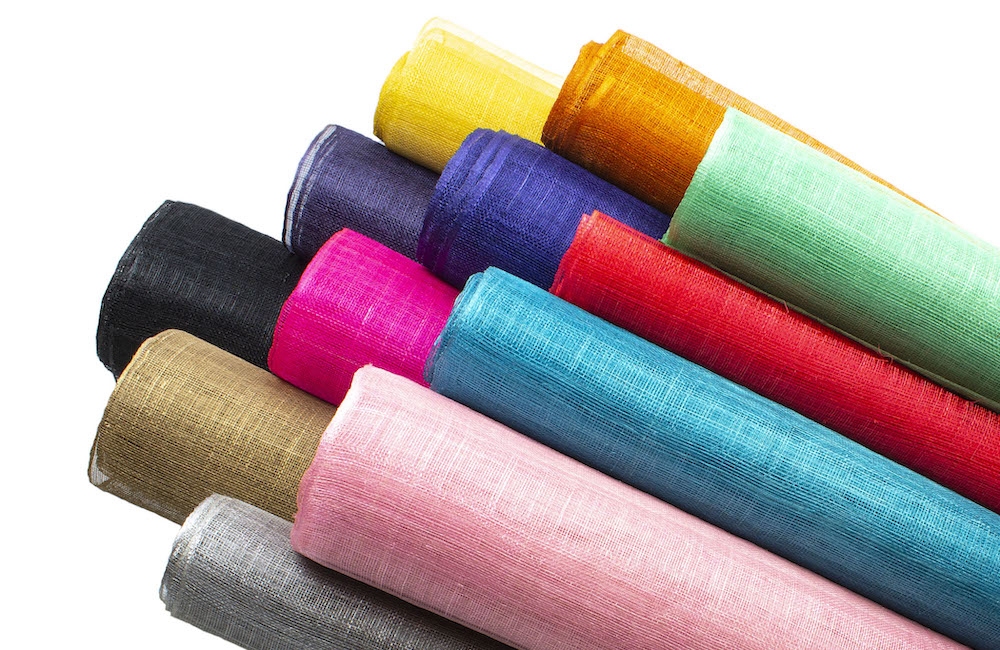
What is Sinamay?
Using Sinamay for Hat Making
There as so many choices when it comes to deciding what millinery material to use. Determining the best material for a specific hat style can be confusing. If you want to create lightweight spring and summer hats, sinamay might be just what you’re looking for.
One of the most popular hat making materials (and one of my favorites), sinamay is a natural straw fabric made from abaca fibers. It is dyeable, versatile and strong, so it offers endless millinery possibilities.
Sinamay is widely used for blocking hats and trims, but it wasn’t introduced to the millinery world until the 1990s. It is woven in the Philippines, from the stalks of the abaca tree. Abaca fibers are very strong and long-lasting. For ease of blocking, sinamay is often pre-stiffened during manufacturing. Plus, since it is a natural material, it holds dye very well.
Grades
Available in a variety of grades and weaves, the tightness of the weave will influence your construction choices.
- A Grade – Also referred to as Pinok Pok, this is an extra fine and tightly woven sinamay with a smoother surface.
- B Grade – This is a fine sinamay, usually woven in 20 x 20 density. It is strong and ideal for blocking.
- C Grade – A more loosely woven sinamay, this grade may require additional layers when blocking and is best used for trims or frayed work.
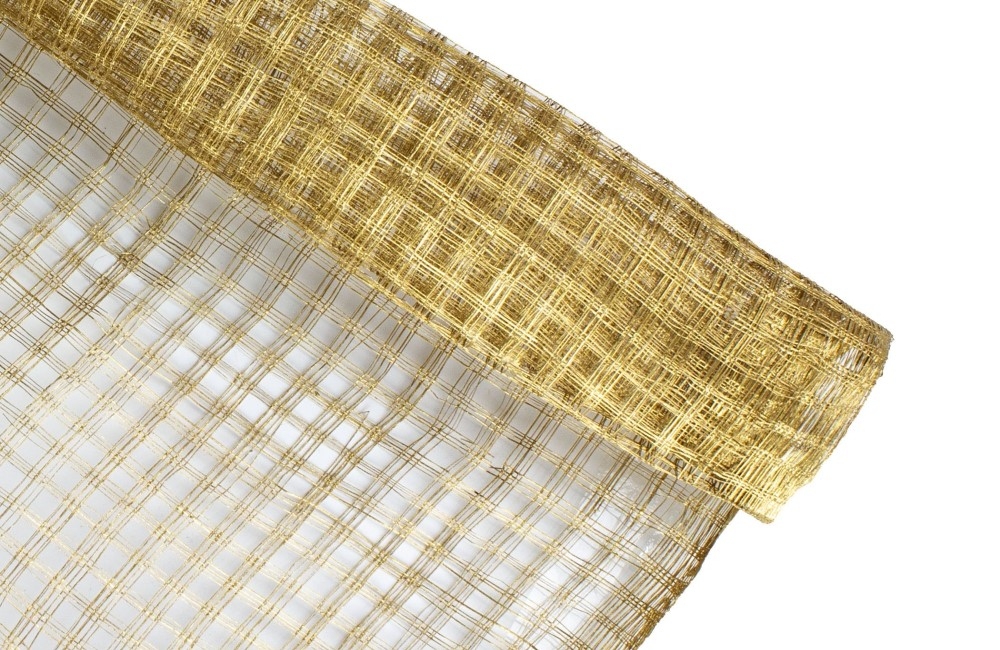
Weaves
You can get interesting effects in your designs by working with different weaves of sinamay. These often work best when blocked in combination with a standard variety.
- Basketweave or Windowpane – Featuring an open-lattice pattern, these are excellent for bias shaping or layering over solid layers. The metallic windowpane sinamay shown above is available from Humboldt Haberdashery.
- Scrunch or Mat – A unique texture created by pressing the fibers (like felt) instead of weaving them.
- Lurex-Woven – This variety is interwoven with Lurex, a synthetic shiny fiber, so it has a great shine and reflective qualities.
Sinamay can be found in a huge range of colors and patterns. There are even animal and polka dot prints out there! Or better yet, for a truly bespoke piece, you can dye your sinamay yourself. This will make your work truly unique and allow you to match your client’s apparel perfectly.
Sinamay is such a great natural fabric to work with and, because it is so popular, it is easy to find. Personally, I love working with it because the fiber structure lends itself to freeform and draping work. It is so fun to manipulate and naturally lends itself to all sorts of design ideas.
Sinamay Projects
Click HERE for all Sinamay Projects.
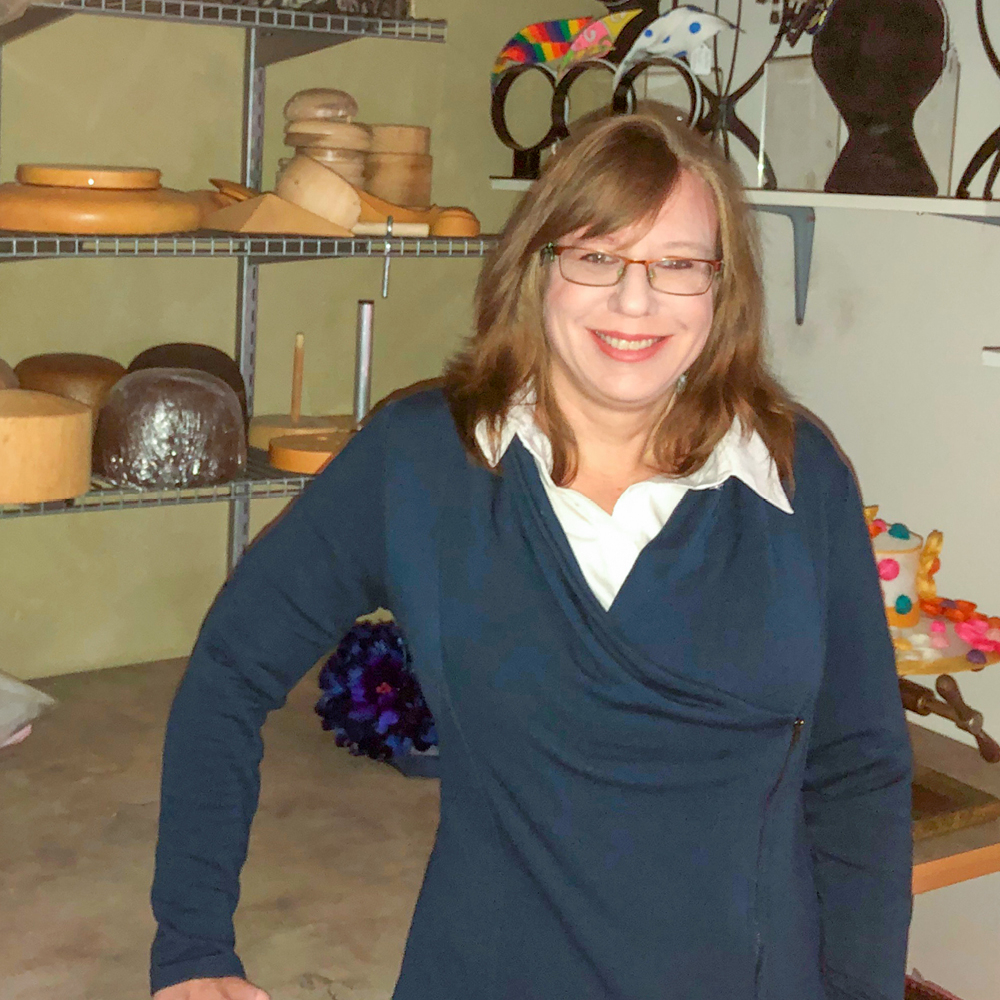
About the Author
Amy Fowler is the creator of the bespoke, California-based Millinery by Amy Fowler label. She also runs Humboldt Haberdashery, an online millinery supplier.
See Amy’s full bio HERE.
Popular Articles
Latest e-Magazine
Featured Supplier

What is Sinamay?
Using Sinamay for Hat Making
There as so many choices when it comes to deciding what millinery material to use. Determining the best material for a specific hat style can be confusing. If you want to create lightweight spring and summer hats, sinamay might be just what you’re looking for.
One of the most popular hat making materials (and one of my favorites), sinamay is a natural straw fabric made from abaca fibers. It is dyeable, versatile and strong, so it offers endless millinery possibilities.
Sinamay is widely used for blocking hats and trims, but it wasn’t introduced to the millinery world until the 1990s. It is woven in the Philippines, from the stalks of the abaca tree. Abaca fibers are very strong and long-lasting. For ease of blocking, sinamay is often pre-stiffened during manufacturing. Plus, since it is a natural material, it holds dye very well.
Grades
Available in a variety of grades and weaves, the tightness of the weave will influence your construction choices.
- A Grade – Also referred to as Pinok Pok, this is an extra fine and tightly woven sinamay with a smoother surface.
- B Grade – This is a fine sinamay, usually woven in 20 x 20 density. It is strong and ideal for blocking.
- C Grade – A more loosely woven sinamay, this grade may require additional layers when blocking and is best used for trims or frayed work.

Weaves
You can get interesting effects in your designs by working with different weaves of sinamay. These often work best when blocked in combination with a standard variety.
- Basketweave or Windowpane – Featuring an open-lattice pattern, these are excellent for bias shaping or layering over solid layers. The metallic windowpane sinamay shown above is available from Humboldt Haberdashery.
- Scrunch or Mat – A unique texture created by pressing the fibers (like felt) instead of weaving them.
- Lurex-Woven – This variety is interwoven with Lurex, a synthetic shiny fiber, so it has a great shine and reflective qualities.
Sinamay can be found in a huge range of colors and patterns. There are even animal and polka dot prints out there! Or better yet, for a truly bespoke piece, you can dye your sinamay yourself. This will make your work truly unique and allow you to match your client’s apparel perfectly.
Sinamay is such a great natural fabric to work with and, because it is so popular, it is easy to find. Personally, I love working with it because the fiber structure lends itself to freeform and draping work. It is so fun to manipulate and naturally lends itself to all sorts of design ideas.
Sinamay Projects
Click HERE for all Sinamay Projects.

About the Author
Amy Fowler is the creator of the bespoke, California-based Millinery by Amy Fowler label. She also runs Humboldt Haberdashery, an online millinery supplier.
See Amy’s full bio HERE.
